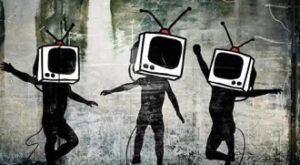
About truth and philosophy
 It was rationalism that led to doubts about external existence (the Other, objects and the outer castle, etc.), already in the classic division of body and mind, the question until the end of the Middle Ages was between realists and nominalists, the former said that the real is that it exists and the seconds that we only name what is external, what exists is in the mind, today there is the linguistic turnaround (or virage).
It was rationalism that led to doubts about external existence (the Other, objects and the outer castle, etc.), already in the classic division of body and mind, the question until the end of the Middle Ages was between realists and nominalists, the former said that the real is that it exists and the seconds that we only name what is external, what exists is in the mind, today there is the linguistic turnaround (or virage).
Imannuel Kant states that the perceptions of the senses are after the experience while a universal a priori is necessary, using the realists’ argument, calling it analytical judgment while the first are the synthetic ones, made from the gathering of information.
The pinnacle of idealism is Hegel, which sets out several ideal concepts: state, spirit, and ethics, but the crisis of modernity will return to old dilemmas: language, discourse, and what is the thing or Being, there are then three twists: the linguistic, the ontological and the “sacred”.
Karl Klaus (1874-1936) already complained about the truth in the journalistic medium, it is true that the cultural industry moved masses, and the network media now too, but what about the truth?
The truth of facticity has lost its strength, there are alternative views and even the corruption of facts, something absurd as “alternative facts”, is not at all hermeneutic because it is precisely its absence, the lack of a hermeneutic circle where preconceptions are. overcome and new horizons can be traced that reinterpret the facts and build the future.
Groups entrenched in their half-truths behave only as twisted, dialogical, acceptance of the Other, and Empathy are but demagogic forms as attempts to co-opt members for the crowd itself.
Of course there is a latent future, sectors of society where cooperation, solidarity and the exercise of seeing the Other is already exercise, are groups and people who have changed the dogmatic way of seeing the world for a broader vision, beyond the group and from the crowd.
But still there are those who closing ranks in their “groups” will demand blind obedience, respect for “authority,” and often will resort to authoritarian methods of bending the Other.
Truth will emerge amid chaos, in the niches of society where there is Phronesis, true reflection, looking at the world as a whole and the other with respect to its particularities.









